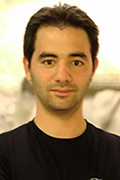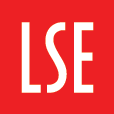by Youssef Cherif
The Nobel Peace Prize coronation was the first positive news coming out of Tunisia this year. It came as all of the country’s indicators are going red. It even seemed anachronistic since Tunisia’s reputation has switched recently; gone are the days when it was hailed as being the Arab Spring initiator. The October 9th announcement was therefore like a breath of fresh air for Tunisians and Tunisia’s international backers alike.
Tunisia’s 2010-11 revolution was less bloody than its neighbours’ upheavals, and its first year of transition was relatively well organised and peaceful. There was however an acceleration of events between late 2011 and mid-2013 that affected the country’s economic structures and social fabric.[i]
The 2013 crisis was solved thanks to the pragmatism of Nida’ Tounes and Ennahdha’s leadership, who abided by the rules imposed upon them by the ‘Quartet’, which forced the different sides to sit and negociate a solution. The Quartet, composed of four Tunisian NGOs, embodied Tunisia’s historic and innate – not imported – civil society. With all their faults, these organisations had a strategy and succeeded to implement it.
It is under the Quartet’s ‘National Dialogue’ agreement that a new constitution was signed and two rounds of elections were organised in 2014. The democratic transition was by then accomplished, and the country was globally praised as free and democratic. International attention then shifted away to more urging regional issues. Awarding it the Nobel Prize was, at first glance, this achievement’s recompense.
Since Tunisia became ‘the first free Arab country’ in 2015, however, its problems only exacerbated. Two terrorist attacks brought its tourism industry to its knees, disturbing investments and international confidence. Inflation and unemployment levels increased, triggering a series of social movements. The police-state and the Ancien Regime staged a comeback, while clientelist and mafia networks enhanced their influence in the country.
The Prize shall therefore be seen instead as an anticipation of things to come, and an example to be emulated in the future and in the region. It is also a way to put Tunisian policymakers and NGOs under scrutiny and to push them to face their responsibilities, similar, in that regard, to the Nobel Peace Prize awarded to the US President Barack Obama during his first year in power in 2009.
This international recognition means that internal dialogue and consensus, rather than imposed conditions or international pressures, shall guide Tunisian politicians and NGOs through future crises. It is also a message to other countries in the region, which took the path of repression, civil strife and full-fledged war. There is no viable alternative to dialogue, the Nobel Committee seems to tell them.
Yet, the most immediate effects of this Nobel Prize will be felt inside the current government and the 2014 elections’ winning parties. Now that the international community has its eyes fixed on Tunisia again, deviations from democracy may be avoided. Civil society on the other hand, frequently accused of being in bed with foreign powers or advocating terrorism, can also find legitimacy in this prize.
Tunisian NGOs should build on this momentum and increase the pressure on politicians and business elites to stick to the processes of consolidating democratic institutions, transitional justice and economic reform. The government should take advantage on this occasion as well to request more aid from the international community . The world needs to also see Tunisia as a successful peacemaker, rather than a security threat.
By January 2016, Tunisia would have entered its sixth year of democratic transition, with limited bloodshed and faltering – but functioning – institutions. The boat keeps sailing, against all odds.
 Youssef Cherif is a project manager for the Institute for War and Peace Reporting, working on Libya. Prior to that, he consulted for the Arab Institute for Business Managers (IACE, on Tunisian foreign policy), the United Nations (implementing the Post-2015 Agenda in Tunisia), the Tunisian Institute for Strategic Studies (ITES, on Arabian Gulf and North African affairs), The Carter Center in Tunisia (political affairs), among others. Youssef holds a Chevening MA in International Relations, from the Department of War Studies of King’s College London, and a Fulbright MA in Classical Studies from Columbia University.
Youssef Cherif is a project manager for the Institute for War and Peace Reporting, working on Libya. Prior to that, he consulted for the Arab Institute for Business Managers (IACE, on Tunisian foreign policy), the United Nations (implementing the Post-2015 Agenda in Tunisia), the Tunisian Institute for Strategic Studies (ITES, on Arabian Gulf and North African affairs), The Carter Center in Tunisia (political affairs), among others. Youssef holds a Chevening MA in International Relations, from the Department of War Studies of King’s College London, and a Fulbright MA in Classical Studies from Columbia University.
[i] It never reached the point of risking civil war though, not least because the possession of firearms is limited to a few, while the use of bladed weapons is virtually unheard of in mob violence.






